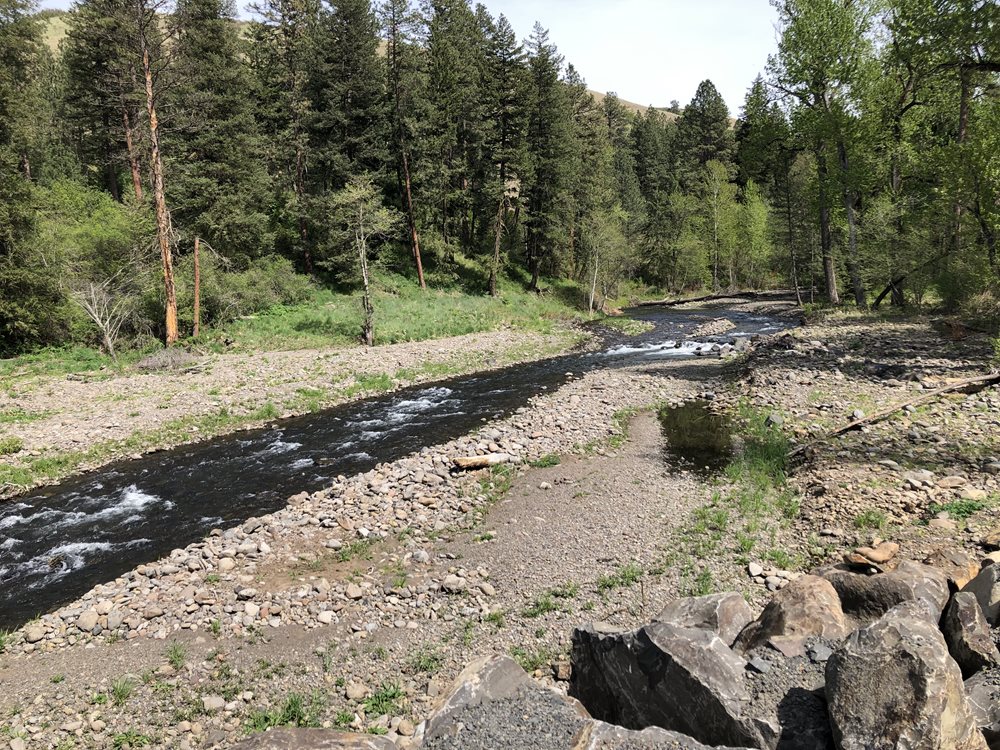
The Walla Walla River basin is a complex and important watershed. Communities, industries, farms, and endangered fish in both Washington and Oregon depend on it. Unfortunately, streamflows and aquifers have steadily declined, despite a decades-long effort to find lasting water solutions in the region.
Why is groundwater important?
Groundwater is water that exists underground in saturated zones beneath the land surface. According to the United States Geological Survey (USGS), groundwater is the source of about 40 percent of water used for public supplies and about 39 percent of water used for agriculture in the United States.
“When water supplies appear to be dwindling, having a clear, scientific understanding of the groundwater is essential,” said Brook Beeler, Ecology’s eastern region director. “In the Walla Walla River Basin this understanding is key to informing decisions and, ultimately, improving streamflows and water supplies over the next 30 years.”
In 2020, the USGS began a groundwater study of the Walla Walla River basin. The results of the study will help develop an updated, comprehensive understanding of the Walla Walla basin groundwater system. This is being done to ensure there is a solid technical foundation for future planning, policy, and management. As the study enters its second year of data collection, engaging stakeholders in the process is essential.
USGS Groundwater Study workshop
In partnership with Oregon Water Resources Department and USGS, the USGS Groundwater Study workshop will provide an overview of the study, the current state of the study, and next steps. After presentations, attendees are encouraged to visit breakout tables to speak with experts and ask questions.
Date: Feb. 28, 2023
6 p.m. – 8 p.m.
Blue Mountain Community College in Milton-Freewater, Oregon
“Our goal for the workshop is to help those living in the Walla Walla River Basin understand the methodology used for the USGS Groundwater Study and to see how their participation has a direct impact on the accuracy of the data,” said Chris Kowitz, North Central Region Manager for the Oregon Water Resources Department.
Please visit Oregon's Walla Walla Subbasin Groundwater study webpage to stay up-to-date with the status of the study and future outreach events.
Walla Walla Water 2050 initiative
In 2019, the Washington Legislature tasked the Walla Walla Management Partnership and our agency to collaboratively develop a 30-year strategic plan for water management in the Walla Walla basin. Together with the Confederated Tribes of the Umatilla Indian Reservation, the State of Oregon and stakeholders on both sides of the state border, the Walla Walla Water 2050 initiative got underway.
As the strategy evolves, the goal remains to improve streamflows and water supplies in the Walla Walla watershed. It will do this by focusing on:
- Floodplains, critical species, habitat, and water quality
- Water supply, streamflows, and groundwater
- Land use and flood control
- Quality of life
- Monitoring and metering
“Meeting the region’s water needs has been a decades-long challenge for this complex watershed,” said Brook Beeler, Ecology’s eastern region director. “Keeping the folks who live in the basin involved in the process is key."

